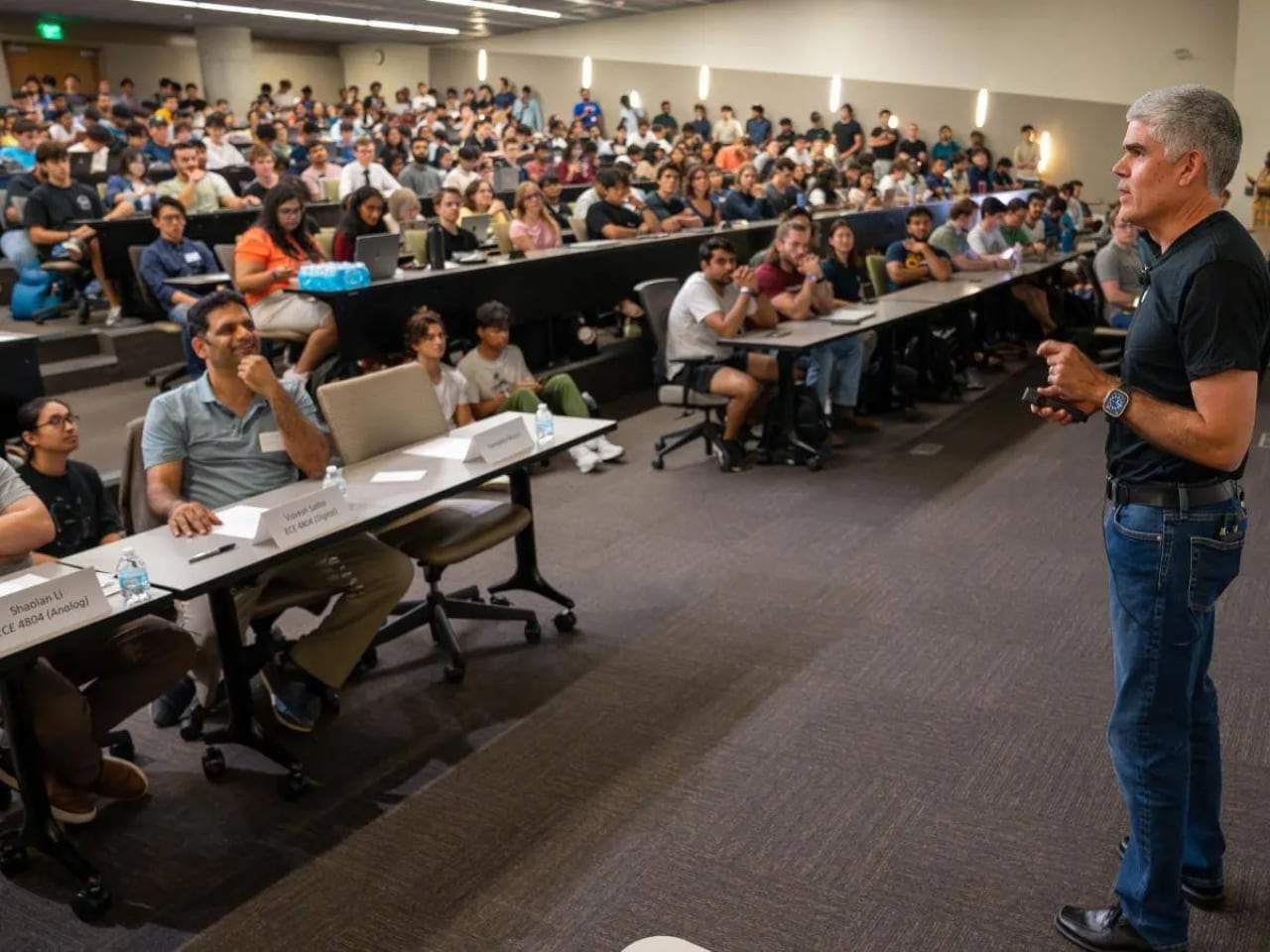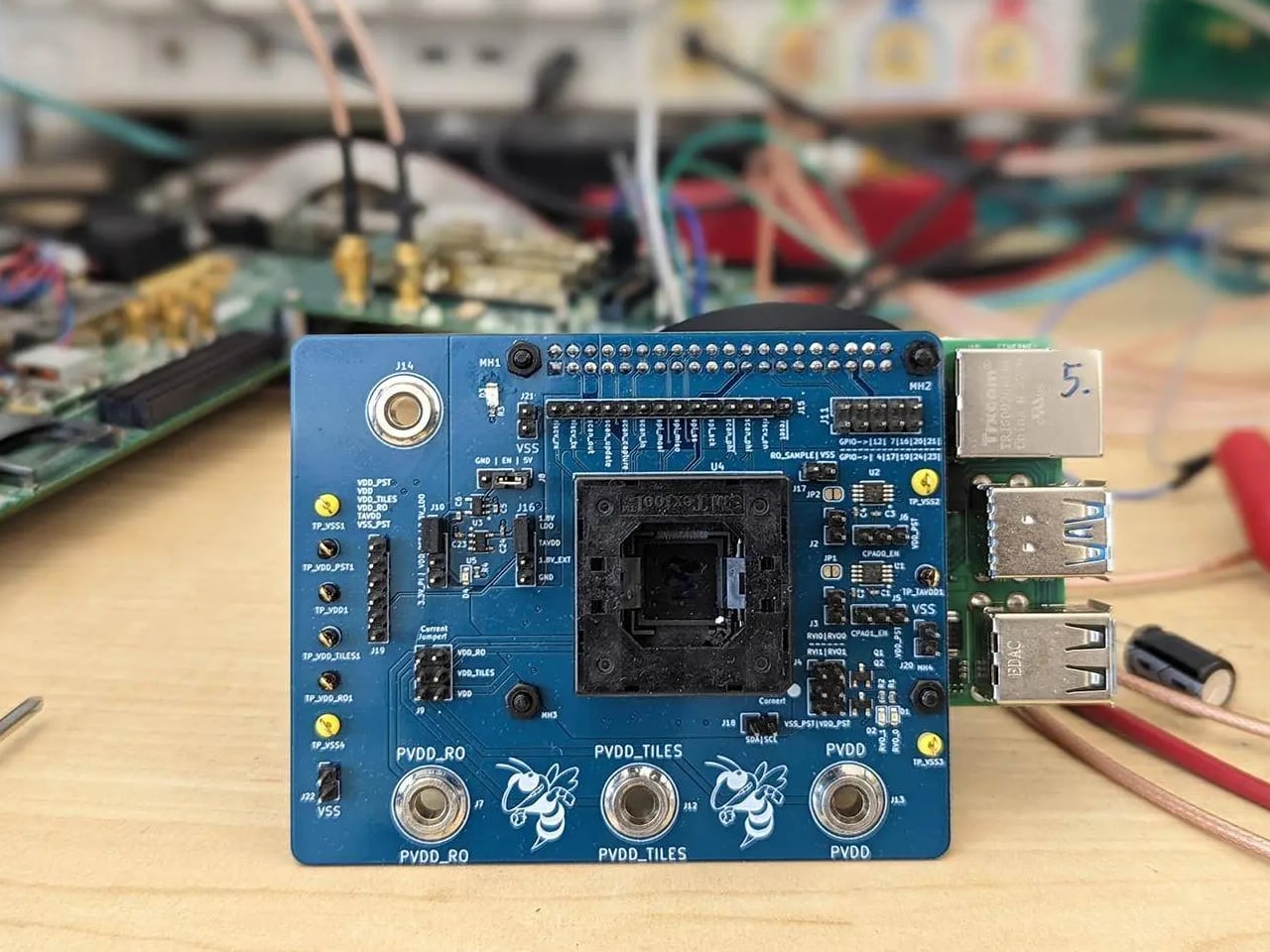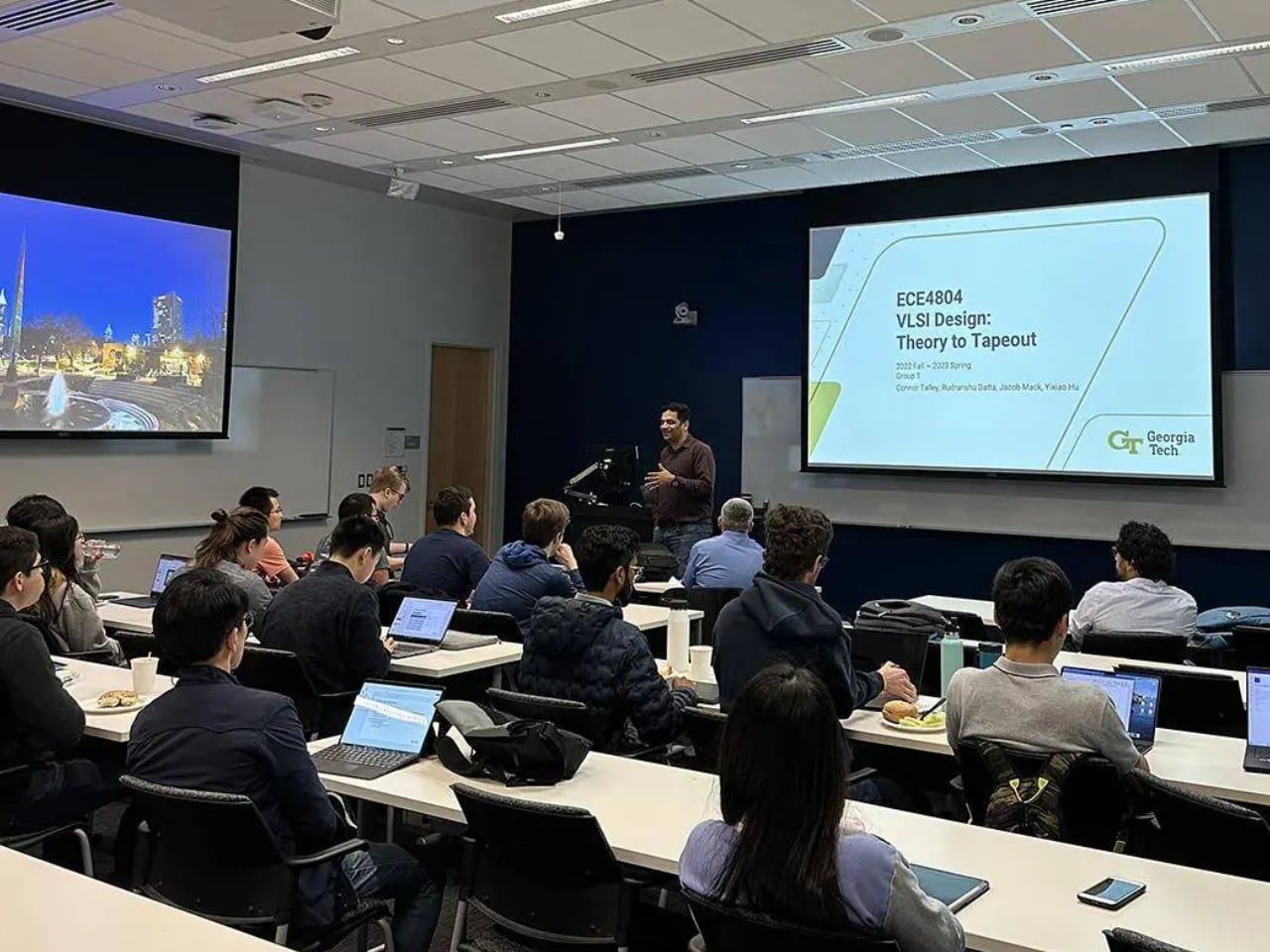
Apple’s efforts to shape the future of technology go well beyond the devices we use every day. The company’s New Silicon Initiative (NSI), started in 2019, aims to nurture talent in chip design, computer architecture, and integrated systems. With Georgia Tech now joining as the eighth university in this initiative, it helps bridge the gap between academic theory and industry practice, setting up future innovators for success in hardware engineering.
The partnership between Apple and Georgia Tech’s School of Electrical and Computer Engineering (ECE) builds upon a collaboration that introduced a digital circuit design course in 2022. This expanded initiative gives ECE students valuable access to Apple’s expertise in multiple ways. Students will have expanded coursework in integrated circuit (IC) design and the tapeout-to-silicon process, along with mentorship from Apple engineers, guest lectures by industry experts, networking events, and direct project reviews.

The final chip designed by ECE 4804 student groups embedded in a PCB.
A great example is the ECE 4804 VLSI Design: Theory to Tapeout course, created in partnership with Apple. This two-semester course takes undergraduates through the complete VLSI design cycle. In the first semester, students design a digital System on Chip (SoC) using industry-standard Electronic Design Automation (EDA) tools. The second semester focuses on testing the fabricated chips manufactured using Taiwan Semiconductor Manufacturing Company (TSMC)’s 65nm CMOS process. This hands-on experience gives students practical insights into chip design and manufacturing.
On October 3, 2024, a kick-off event at Georgia Tech attracted over 600 students, showing a strong interest in this collaboration. The initiative provides students with hands-on experience in integrated systems and silicon chip design, skills that are fundamental to the development of modern technology. The NSI program at Georgia Tech offers several benefits to students. These include scholarship and fellowship opportunities, such as a Ph.D. Fellowship in Integrated Circuits and Systems announced in October. The curriculum has been enhanced to focus on circuit technology, electronic devices, computing hardware, and emerging architectures. Students will receive direct feedback from Apple engineers on IC design course projects, giving them invaluable industry insights. Moreover, they will gain exposure to new technologies and industry practices, preparing them for an evolving tech landscape. These elements give students a valuable view of industry practices, preparing them for the tech landscape.

More than 600 Georgia Tech students joined the Apple NSI kick-off event at the Clough Undergraduate Learning Commons in early October, highlighting the excitement around this partnership.
Apple engineers will collaborate with ECE faculty to present guest lectures in various integrated system design courses. The engineers will also participate in project reviews in several IC design courses and offer practical feedback to help students refine their designs during the tape-out process. In the inaugural run of the VLSI Design course, every student design was validated as fully functional—a success that highlights the value of direct industry involvement.

ECE Professor Visvesh Sathe teaching the first VLSI Design: Theory to Tapeout cohort in Spring 2023.
“Working with Apple as part of its New Silicon Initiative allows us to bridge the skills gap for a workforce in IC design and computer architecture by preparing students with the technical abilities and skills to enter a rapidly evolving, always in-demand industry,” said Arijit Raychowdhury, professor and Steve W. Chaddick School Chair of ECE.
This collaboration represents an important investment in the future of hardware engineering and chip design. By bringing real-world challenges and professional feedback directly into the academic setting, Apple is helping to accelerate the growth of the next generation of talent. This initiative impacts Georgia Tech students and the broader future of technology development and innovation.
Looking ahead, there are plans to expand this course and explore new courses in other chip development areas, like analog and packaging. As technology advances, initiatives like NSI are crucial in preparing tomorrow’s workforce to meet the industry’s challenges.
The post Apple and Georgia Tech Team Up to Design the Future of Chip Engineering first appeared on Yanko Design.
0 Commentaires